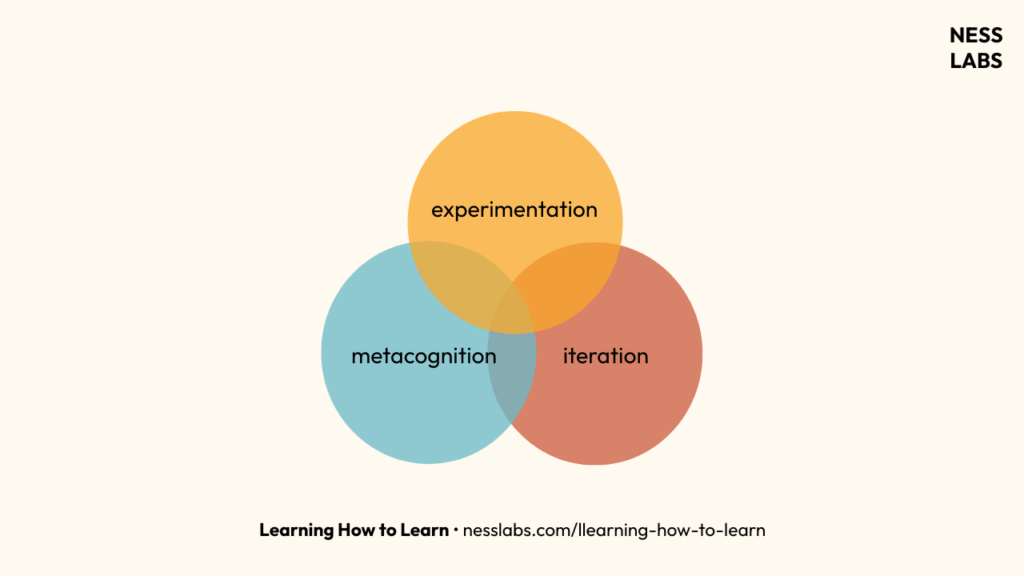Traditional education teaches us what to think, not how to think. We memorize facts for tests, then forget them. We follow instructions instead of designing our own learning paths. Nobody teaches us the most important skill of all: learning how to learn.
This gap matters because skills become obsolete faster than ever. The technology you learned last year might already be outdated. The strategy that worked yesterday might fail tomorrow. What remains constant is your ability to experiment, reflect, and iterate.
The paradox of modern learning
Understanding how your brain actually learns has never been more important. Your brain operates in two distinct modes that work together to help you master new material:
- The focused mode is when you’re actively concentrating, such as reading this article, solving a coding problem, or practicing a new language.
- The diffused mode kicks in when you step back and let your mind wander—during a walk, in the shower, or while falling asleep.
But we now face unprecedented challenges that complicate this natural process. We have access to infinite information but struggle to filter what’s valuable. The very abundance that should accelerate our learning often paralyzes it instead.
AI is fundamentally reshaping this landscape. Memorizing facts is becoming less important than knowing how to ask the right questions and evaluate AI-generated responses. Yet this same technology that can accelerate learning also risks creating dependency if we don’t learn to leverage it strategically.
Complicating matters further, not everyone’s brain works the same way. For instance, neurodivergent people can be hyperfocused and hypercurious but struggle with sustained attention on uninteresting topics. These aren’t deficits to overcome—they’re cognitive differences that require adapted environments.
The key is understanding how your unique brain works in this new landscape and designing learning strategies that work with your natural patterns while leveraging the tools available to you.
How to learn anything
Learning how to learn comes down to three essential practices that compound over time. Rather than chasing learning hacks, focus on these three fundamental practices that work regardless of what you’re learning or how your brain is wired.

1. Experimentation. Instead of passively absorbing information, actively try new approaches by conducting tiny experiments. Just use the following format to design a mini-protocol: “I will [action] for [duration].” By experimenting, you will gather data about what works for your brain instead of copy-pasting someone else’s approach.
2. Metacognition. This is the practice of observing your own thinking. It’s what allows you to notice how your mind moves through uncertainty. The simplest way to build metacognitive awareness is to reflect on your experience. What worked well? What didn’t go so well? What might you try differently next time? You can use Plus Minus Next as a simple template anytime growth is possible.
3. Iteration. Learning compounds by making adjustments after each experiment. You drop what didn’t feel right, build on what did, and try a slightly different version. Over time, you’ll notice what energizes you, what pulls you forward, and what holds you back, allowing you to stay in conversation with yourself, one growth loop at a time.
In a world where knowledge changes faster than we can master it, your most valuable skill isn’t what you know—it’s how you learn.
Whether you’re picking up a new language, navigating a career shift, or simply trying to stay curious in a noisy world, learning how to learn is the foundation that will support it all.
Experiment, reflect, adjust. Do this consistently, with curiosity and intention and you’ll soon realize you don’t need a map. You just need an experimental mindset.
P.S. There is also a great course on Coursera called Learning How to Learn, taught by Dr. Barbara Oakley and Dr. Terrence Sejnowski.
